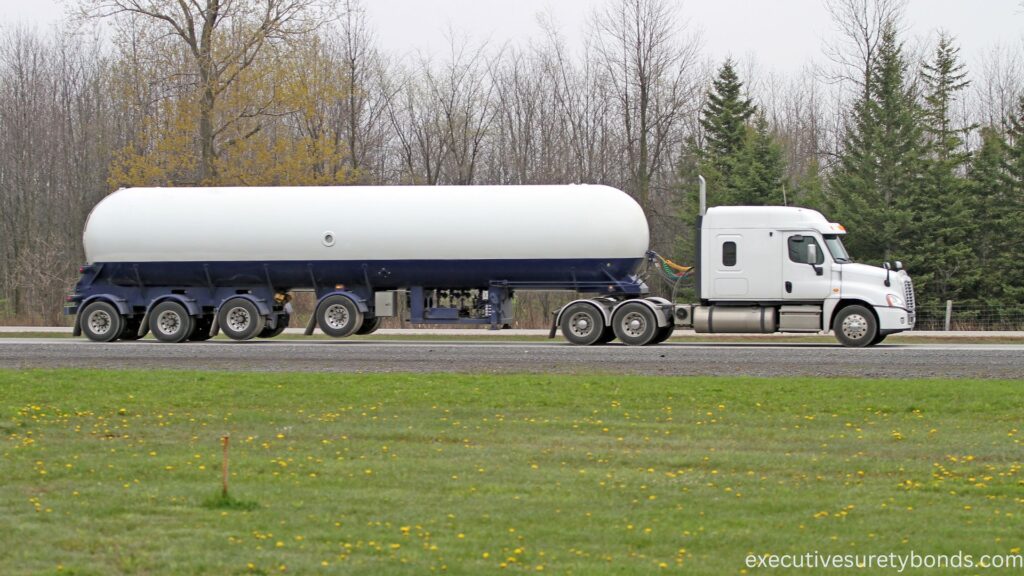Introduction
Have you ever wondered how the state funds the construction and maintenance of its vast network of roads and highways? Well, a significant part of the answer lies in the Louisiana Motor Fuels Tax. Every time you fill up your vehicle’s gas tank, a portion of what you pay contributes to this tax fund. But to ensure that the tax is collected accurately and fairly, there’s something called the Interstate Motor Fuel User Bond. In this article, we’ll explore what the Louisiana Motor Fuels Tax is, why it’s crucial, and the role of the Interstate Motor Fuel User Bond in this process.
Understanding the Louisiana Motor Fuels Tax
The Louisiana Motor Fuels Tax is a tax on motor fuels like gasoline and diesel. It’s a tax applied to each gallon of fuel sold in the state. The revenue generated from this tax is essential for funding road construction, maintenance, and various transportation-related projects.
What is an Interstate Motor Fuel User Bond?
The Interstate Motor Fuel User Bond is a financial guarantee required by the Louisiana Department of Revenue from entities that use motor fuels for interstate transportation. These entities, often trucking companies and carriers, are responsible for ensuring that their fuel usage complies with state tax regulations.
Why is it Required?
The requirement for an Interstate Motor Fuel User Bond serves several vital purposes:
- Tax Collection: It ensures that entities using motor fuels for interstate transportation correctly report and pay the Motor Fuels Tax to the state. This tax revenue is essential for funding road projects and maintaining our state’s transportation infrastructure.
- Fair Competition: It levels the playing field among entities in the transportation industry by holding them accountable for their fuel tax obligations. This helps prevent unfair advantages due to tax evasion.
- Regulatory Compliance: Entities involved in interstate transportation must adhere to state laws and regulations regarding fuel usage. If they fail to do so, the bond can be used to cover fines and penalties.
How Does it Affect Interstate Carriers and Drivers?
The presence of the Interstate Motor Fuel User Bond primarily affects interstate carriers and indirectly impacts drivers:
- Interstate Carriers: Interstate carriers must obtain and maintain this bond as part of their legal obligations. It represents a financial commitment to ensure they comply with tax regulations and accurately report their fuel usage for interstate transportation.
- Drivers: Drivers benefit from the funds generated through the Motor Fuels Tax, as it contributes to maintaining and improving the quality of Louisiana’s roads and highways. This makes travel safer and more efficient.
Conclusion
In conclusion, the Louisiana Motor Fuels Tax and the Interstate Motor Fuel User Bond are critical components of Louisiana’s transportation infrastructure funding system. The next time you see a truck on the highway, remember that a portion of what keeps it moving goes into maintaining our roads. The Interstate Motor Fuel User Bond ensures that entities engaged in interstate transportation fulfill their fuel tax obligations, which benefits both the state and all of us who depend on safe and efficient transportation. So, the next time you hit the road in Louisiana, know that these financial mechanisms are at work behind the scenes to keep our journeys smooth and our infrastructure strong.
Frequently Asked Questions
Can individual truck drivers who engage in interstate transportation be required to obtain an Interstate Motor Fuel User Bond in Louisiana, or is this bond specifically for businesses and entities?
In Louisiana, the Interstate Motor Fuel User Bond is typically required from businesses and entities engaged in interstate transportation that use motor fuels. Individual truck drivers may not be subject to this specific bonding requirement. However, they are still required to comply with motor fuels tax regulations, and the responsibility for ensuring tax compliance often falls on the business or entity that employs or contracts with them.
Are there any specific conditions or procedures for entities that need to increase the coverage or amount of their Interstate Motor Fuel User Bond due to changes in their interstate transportation operations in Louisiana?
Entities that need to increase the coverage or amount of their Interstate Motor Fuel User Bond in Louisiana due to changes in their interstate transportation operations should contact the Louisiana Department of Revenue. The department will provide guidance on the specific conditions and procedures for adjusting the bond coverage to align with the updated requirements. It’s crucial to maintain compliance with the bond’s coverage requirements to avoid potential penalties or fines.
Can out-of-state entities engaged in interstate transportation through Louisiana choose to use a bond from their home state to satisfy the Interstate Motor Fuel User Bond requirement, or must they obtain a bond specifically from Louisiana authorities?
Out-of-state entities engaged in interstate transportation through Louisiana are typically required to obtain an Interstate Motor Fuel User Bond that complies with Louisiana regulations. Using a bond from their home state may not be accepted to fulfill the bond requirement in Louisiana. It’s essential for out-of-state entities to ensure they have the appropriate bond coverage in accordance with Louisiana’s tax regulations to operate legally within the state.

